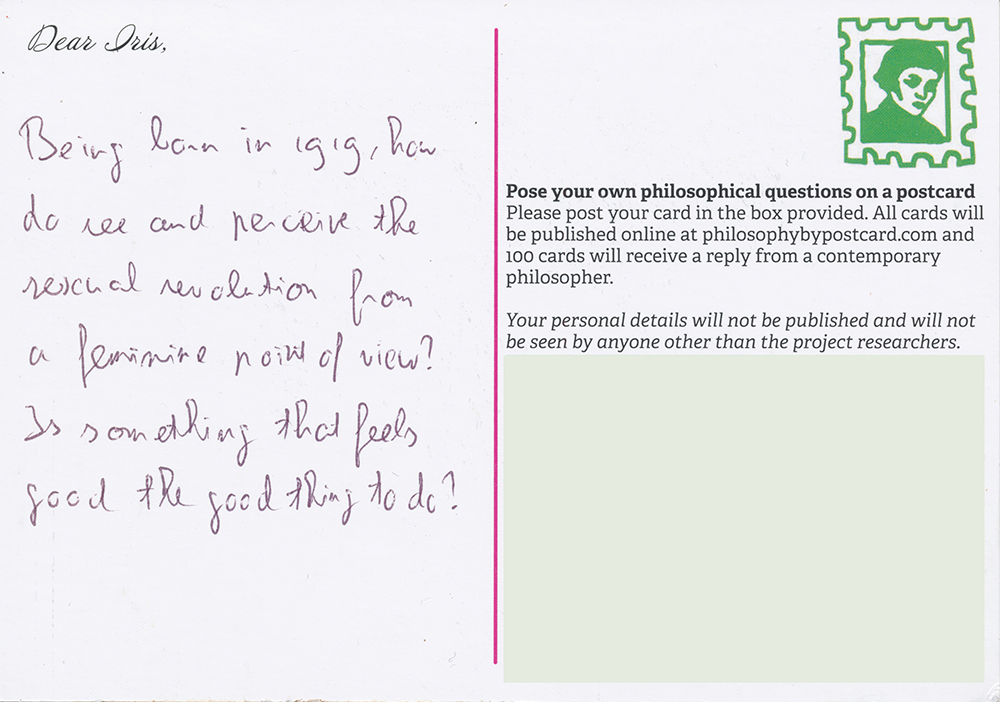Being born in 1919, how do see and perceive the sexual revolution from a feminine point of view? Is something that feels good the good thing to do?
Dear Familie,
There are many different angles from which one could approach your question, for example, distinguishing different senses of the good – the feeling good of bodily pleasure from the moral good. But from a feminist perspective, a more useful approach may be to think about what it would mean for something to feel good. As many feminist philosophers have pointed out, women are often praised and rewarded for things that don’t benefit then and which may even harm them: the subservient housewife praised for sacrificing herself to serve her husband, the woman who moulds her sexuality and sexual presentation in ways that serve male sexual desire. Within the context of the patriarchy, it is difficult to know what one’s true desires really are, as there is a lot of visible and invisible pressure to conform to societal expectations of what a woman should be. For these reasons, feminist philosophers like Simone de Beauvoir, encouraged us to focus not on the satisfaction of desire or happiness when pursuing the feminist project, but rather to focus on ‘the individual’s possibilities not in terms of happiness, but in terms of freedom’: asking whether something expresses a sentiment that manifests our freedom, rather than the fulfilment of our desires or happiness, serves as a useful guide for keeping the focus on feminist liberation.
So in conclusion ask whether what you’re doing enhances or diminishes your freedom and then you’ll know what to do. The only question that then remains is what is freedom? But there’s not enough room on the postcard for that!
All best wishes from the University of Groningen,
Dr Charlotte Knowles
Charlotte Knowles
University of Groningen, The Netherlands
Website
In my own work, I aim to think about attitudes and their role in alienating us from our own self-responsibility and freedom. Murdoch’s notion of attention is a key touchstone for thinking about the extent to which we can change our attitudes, and how we might have a responsibility to do so. I notice how a literary sensibility opens up new ways of doing philosophy and exploring philosophical issues. There’s always more to find in the work: the possibility of seeing the same thing with new eyes.



